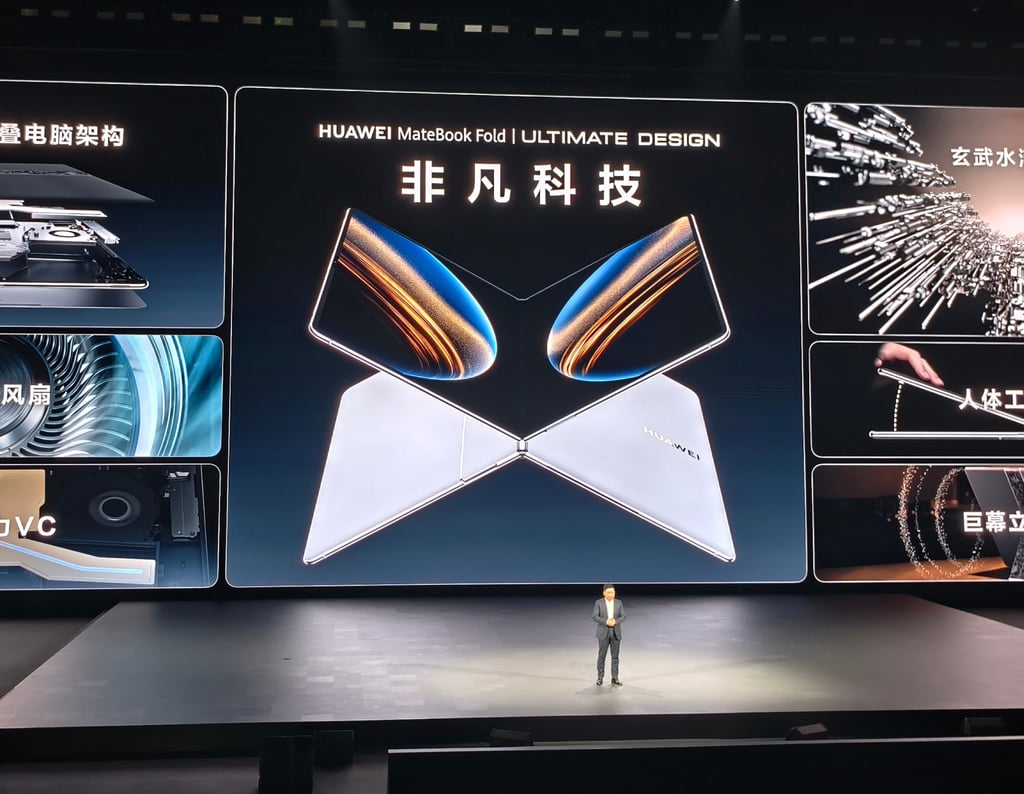Huawei Technologies continues to face challenges in advancing to the 5-nanometre chip manufacturing process, an analysis of its latest laptop hardware shows, underscoring the impact of US sanctions on the Chinese telecoms equipment giant.
Canadian research firm TechInsights found that the newly launched MateBook Fold Ultimate Design laptop features Huawei’s Kirin X90 system-on-a-chip (SoC), which is manufactured by China’s Semiconductor Manufacturing International Corporation (SMIC) using its 7-nm process node, according to a report published last week.
The finding dampens speculation that Huawei had made the leap to SMIC’s 5-nm process, for which production is difficult to scale because of US sanctions on the sale of the most advanced chipmaking equipment to Chinese fabrication plants. The report comes nearly two years after TechInsights identified that Huawei was using SMIC’s 7-nm process for the Kirin chips in its latest smartphones, starting with the Mate 60 Pro.
Unveiled in May, the new MateBook Fold is Huawei’s first laptop with a foldable display, aimed at competing with similar offerings from Lenovo Group and HP. It runs on Huawei’s proprietary HarmonyOS operating system, as the company pushes for self-reliance in both hardware and software.

Huawei’s slow progress in securing 5-nm chips would mean the company is “multiple generations behind” its US rivals such as Apple, according to the report. Apple’s M-series chips have been using Taiwan Semiconductor Manufacturing Company’s (TSMC) 3-nm process for the past two years.


